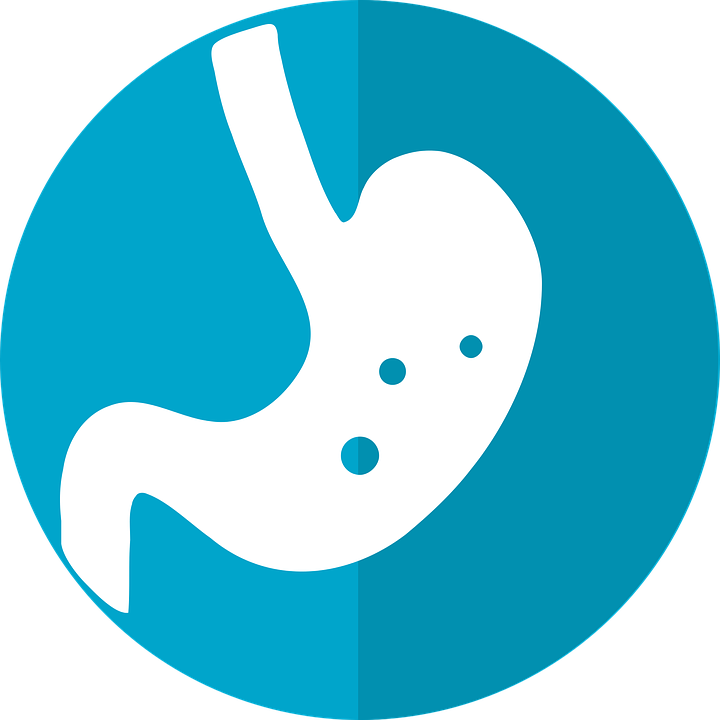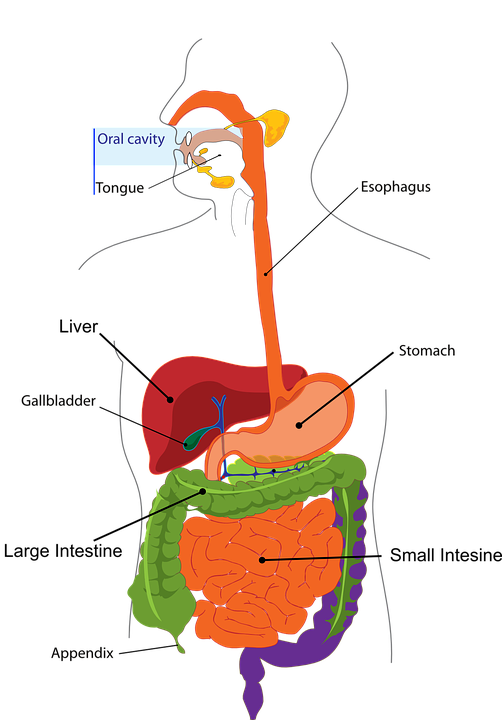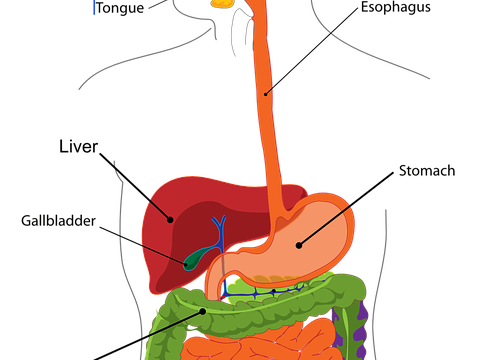Chapter 10 Why are hospitals helpless against chronic diseases?
第10章 为什么医院对慢性病束手无策?
dì shí zhāng – wèishéme yīyuàn duì mànxìngbìng shùshǒuwúcè?
Chronic gastritis, chronic enteritis, and chronic osteomyelitis are all chronic diseases.
慢性胃炎、慢性肠炎、慢性骨髓炎等,这些疾病都属于慢性病。
màn xìng wèi yán, màn xìng cháng yán, màn xìng gǔ suǐ yán děng, zhèi xiē jí bìng dōu shǔ yú màn xìng bìng.
Chronic disease is the outward manifestation of the failure of the body to rehabilitate.
慢性病是身体修复失败的外在表现。
màn xìng bìng shì shēn tǐ xiū fù shī bài de wài zài biǎo xiàn.
The body’s ability to rehabilitate is not easy to give up and surrender. When a part of the body is damaged, the body starts to rehabilitate.
身体的修复能力是不会轻易放弃、举手投降的。当身体的某个部位损伤后,身体就开始修复。
shēn tǐ de xiū fù néng lì shì bú huì qīng yì fàng qì, jǔ shǒu tóu xiàng de. dāng shēn tǐ de mǒu gè bù wèi sǔn shāng hòu, shēn tǐ jiù kāi shǐ xiū fù.
The pathogenesis of chronic diseases is a cyclical process of continuous damage and rehabilitate, rehabilitate and re-injury, and re-injury and re-rehabilitate.
慢性病的发病过程就是不断地进行损伤修复、修复再损伤、再损伤再修复的循环往复的过程。
màn xìng bìng de fā bìng guò chéng jiù shì bù duàn dì jìn xíng sǔn shāng xiū fù, xiū fù zài sǔn shāng, zài sǔn shāng zài xiū fù de xún huán wǎng fù de guò chéng.
In simple words, a certain part of the body is broken, broken again after being repaired, and this process is repeated continuously.
通俗地讲,身体的某个零部件坏了,修上后又坏了,在给修上后又坏了,这个过程不断地重复进行。
tōng sú dì jiǎng, shēn tǐ de mǒu gè líng bù jiàn huài le, xiū shàng hòu yòu huài le, zài gěi xiū shàng hòu yòu huài le, zhè gè guò chéng bù duàn dì chóng fù jìn xíng.
During this process, the body mobilizes all the nutrients from all over the body to rehabilitate the damaged area.
在这一过程中,身体会从全身各处调动一切可调动的营养素到受损伤的部位进行修复。
zài zhè yī guò chéng zhōng, shēn tǐ huì cóng quán shēn gè chù diào dòng yī qiè kě diào dòng de yíng yǎng sù dào shòu sǔn shāng de bù wèi jìn xíng xiū fù.
Our body is very interesting, and the best thing it can do is to tear down the east wall to make up for the west wall, but the premise is that the east wall is allowed to be disassembled, and it doesn’t matter if it is disassembled a little bit. Until one day, there was no more extra to disassemble on the east wall. At this time, the adjustable nutrients were essentially used up, and there were no raw materials, and the rehabilitation is helpless when the damage occurred.
我们的身体很有趣,最会干的事就是拆东墙补西墙,但前提条件是东墙允许拆,拆一点儿也没什么大的关系。直到有一天,东墙再也没有多余的可拆了,此时本质上就是可调动的营养素耗尽了,没原料了,修复才眼看着损伤的发生而无可奈何,自己空有一本的本领而无处施展。
wǒ men de shēn tǐ hěn yǒu qù, zuì huì gān de shì jiù shì chāi dōng qiáng bǔ xī qiáng, dàn qián tí tiáo jiàn shì dōng qiáng yǔn xǔ chāi, chāi yì diǎn ér yě méi shén me dà de guān xì. zhí dào yǒu yì tiān, dōng qiáng zài yě méi yǒu duō yú de kě chāi le, cǐ shí běn zhì shàng jiù shì kě diào dòng de yíng yǎng sù hào jìn le, méi yuán liào le, xiū fù cái yǎn kàn zhuó sǔn shāng de fā shēng ér wú kě nài hé, zì jǐ kōng yǒu yī běn de běn lǐng ér wú chǔ shī zhǎn.
From the above point of view, chronic disease is not a single organ problem, it involves multiple systems throughout the body. Because in the process of disease, it is necessary to mobilize nutrients from various systems of the body to rehabilitate the damaged part.
从上述看,慢性病不是单一器官的问题,它牵涉到全身的多个系统。因为在发病过程中,要从全身各系统调动营养素来修复损伤部位。
cóng shàng shù kàn, màn xìng bìng bú shì dān yī qì guān de wèn tí, tā qiān shè dào quán shēn de duō gè xì tǒng. yīn wèi zài fā bìng guò chéng zhōng, yào cóng quán shēn gè xì tǒng diào dòng yíng yǎng sù lái xiū fù sǔn shāng bù wèi.
For example, is chronic gastritis simply a stomach problem? Let’s analyze:
比如,慢性胃炎单纯是胃的问题吗?我们分析一下:
bǐ rú, màn xìng wèi yán dān chún shì wèi de wèn tí ma? wǒ men fēn xī yī xià:

Who is prone to gastritis? hot-tempered, sensitive and work-stressed. People with poor liver function are generally hot-tempered, and irritability can also damage the liver. Therefore, gastritis has a certain relationship with liver function.
哪些人容易得胃炎呢?脾气急的、小心眼的和工作压力大的。肝功能不好的人一般脾气急躁,脾气暴躁也会伤肝。所以胃炎跟肝功能有一定关系。
něi xiē rén róng yì dé wèi yán ne? pí qì jí de, xiǎo xīn yǎn de hé gōng zuò yā lì dà de. gān gōng néng bù hǎo de rén yì bān pí qì jí zào, pí qì bào zào yě huì shāng gān. suǒ yǐ wèi yán gēn gān gōng néng yǒu yí dìng guān xì.
People with gastritis often have poor sleep, and those with poor sleep will not have a good function of stomach, indicating that stomach problems are also related to the nerve system.
有胃炎的人往往睡眠不好,睡眠不好的人胃也不会太好,说明胃病跟神经系统也有关系。
yǒu wèi yán de rén wǎng wǎng shuì mián bù hǎo, shuì mián bù hǎo de rén wèi yě bú huì tài hǎo, shuō míng wèi bìng gēn shén jīng xì tǒng yě yǒu guān xì.
Therefore, chronic gastritis is not a simple stomach problem, but a manifestation of multi-system dysfunction in a single organ.
所以,慢性胃炎不是单纯胃的问题,而是多系统功能紊乱在单一器官的表现。
suǒ yǐ, màn xìng wèi yán bú shì dān chún wèi de wèn tí, ér shì duō xì tǒng gōng néng wěn luàn zài dān yī qì guān de biǎo xiàn.
Human chronic diseases are all external manifestations of multi-system dysfunction in a single organ. In other words, chronic diseases are systemic problems, and hospitals can hardly solve such problems.
人类的慢性疾病都是多系统功能紊乱在单一器官的外在表现。也就是说慢性病是系统问题,医院几乎解决不了这样的问题。
rén lèi de màn xìng jí bìng dōu shì duō xì tǒng gōng néng wěn luàn zài dān yī qì guān de wài zài biǎo xiàn. yě jiù shì shuō màn xìng bìng shì xì tǒng wèn tí, yī yuàn jī hū jiě jué bù liǎo zhè yàng de wèn tí.
The so-called system is the sum of all components that can independently complete a task.
所谓系统,就是能独立完成一个任务的所有部件的总和。
suǒ wèi xì tǒng, jiù shì néng dú lì wán chéng yí gè rèn wù de suǒ yǒu bù jiàn de zǒng hé.
For example, the digestive system includes many “parts” such as the mouth, esophagus, stomach, small intestine, large intestine, liver, pancreas, etc. A common task of so many “parts” is to digest food and absorb nutrients. The liver secretes bile and stores it in the gallbladder, the pancreas secretes pancreatic juice, and when the food enters the stomach for initial “grinding” and then enters the small intestine, bile and pancreatic juice also enter the small intestine to help digestion and absorption.
比如消化系统包括口腔、食道、胃、小肠、大肠、肝脏、胰腺等很多“部件”,这么多“部件”的一个共同任务就是消化食物、吸收营养。肝脏分泌胆汁储存在胆囊里,胰腺分泌胰液,当食物进入胃初步“研磨”后进入小肠,这是胆汁和胰液也进入小肠帮助消化吸收。
bǐ rú xiāo huà xì tǒng bāo kuò kǒu qiāng, shí dào, wèi, xiǎo cháng, dà cháng, gān zàng, yí xiàn děng hěn duō “ bù jiàn ”, zhè me duō “ bù jiàn ” de yí gè gòng tóng rèn wù jiù shì xiāo huà shí wù, xī shōu yíng yǎng. gān zàng fēn mì dǎn zhī chú cún zài dǎn náng lǐ, yí xiàn fēn mì yí yè, dāng shí wù jìn rù wèi chū bù “ yán mó ” hòu jìn rù xiǎo cháng, zhè shì dǎn zhī hé yí yè yě jìn rù xiǎo cháng bāng zhù xiāo huà xī shōu.
For example, a computer is a system, which consists of a monitor, a keyboard, a motherboard, a CPU, and many other components.
打个比方,一台电脑就是一个系统,由显示器、键盘、主板、CPU等很多部件组成。
dǎ gè bǐ fāng, yī tái diàn nǎo jiù shì yí gè xì tǒng, yóu xiǎn shì qì, jiàn pán, zhǔ bǎn, CPU děng hěn duō bù jiàn zǔ chéng.
If the computer suddenly freezes while using it, the system is out of order. What should you do then? You press the button to restart, what does the restart process do? It is the process of system self-healing. The system checks on its own what goes wrong, and then solves the problem on its own. You never disassemble the computer to see where it is wrong so you can fix it as soon as it crashes.
你在使用电脑过程中突然死机了,就是系统紊乱了。这时怎么办?你按一下电钮重启,重启的过程是做什么呢?是系统自我修复的过程。系统自己检查是哪里出了问题,然后自己把问题解决掉。你从来不会电脑一死机,马上拆电脑,非要看死在哪里了好把它修好。
nǐ zài shǐ yòng diàn nǎo guò chéng zhōng tū rán sǐ jī le, jiù shì xì tǒng wěn luàn le. zhè shí zěn me bàn? nǐ àn yī xià diàn niǔ chóng qǐ, chóng qǐ de guò chéng shì zuò shén me ne? shì xì tǒng zì wǒ xiū fù de guò chéng. xì tǒng zì jǐ jiǎn chá shì nǎ lǐ chū le wèn tí, rán hòu zì jǐ bǎ wèn tí jiě jué diào. nǐ cóng lái bú huì diàn nǎo yī sǐ jī, mǎ shàng chāi diàn nǎo, fēi yào kàn sǐ zài nǎ lǐ le hǎo bǎ tā xiū hǎo.
The same is true for the occurrence of diseases. The system is in disorder. It is almost impossible for the hospital to correct the disorder of the system. The only feasible way is to let the system rehabilitate itself. And the human body’s ability to rehabilitate can do exactly that.
疾病的发生也是相同的道理,是系统紊乱了,医院几乎不可能把系统紊乱纠正,唯一可行的方式就是让系统自我修复。而人体的修复能力完全可以做到这一点。
jí bìng de fā shēng yě shì xiāng tóng de dào lǐ, shì xì tǒng wěn luàn le, yī yuàn jī hū bù kě néng bǎ xì tǒng wěn luàn jiū zhèng, wéi yī kě xíng de fāng shì jiù shì ràng xì tǒng zì wǒ xiū fù. ér rén tǐ de xiū fù néng lì wán quán kě yǐ zuò dào zhè yì diǎn.
Why can hospitals hardly solve the problem of systemic disorder? Not because the doctor is not smart, but because of the way the western medicine prescribed by the doctor targets on the human body.
为什么医院几乎解决不了系统紊乱问题呢?不是因为医生笨,而是跟医生开的西药作用于人体的方式有关。
wèi shén me yī yuàn jī hū jiě jué bù liǎo xì tǒng wěn luàn wèn tí ne? bú shì yīn wèi yī shēng bèn, ér shì gēn yī shēng kāi de xī yào zuò yòng yú rén tǐ de fāng shì yǒu guān.
Today’s hospitals are always involved in the internal affairs of the system. The effect of western medicine is not targeted at the system level, but at a very precise point, directly targets on a certain position in some cells in an organ, such as an enzyme in the mitochondria, or an enzyme on the cell membrane, or a molecule within a cell. Molecules make up cells, cells make up organs, and organs make up systems.
今天的医院总是插手系统内部事务,西药的作用不是在系统层面的,而是在一个非常精确的点,直接作用于某个器官内的一些细胞中的某个位置,例如线粒体中的某个酶,或细胞膜上的某个酶,或细胞内的某个分子。分子组成细胞,细胞组成器官,器官组成系统。
jīn tiān de yī yuàn zǒng shì chā shǒu xì tǒng nèi bù shì wù, xī yào de zuò yòng bú shì zài xì tǒng céng miàn de, ér shì zài yí gè fēi cháng jīng què de diǎn, zhí jiē zuò yòng yú mǒu gè qì guān nèi de yì xiē xì bāo zhōng dì mǒu gè wèi zhì, lì rú xiàn lì tǐ zhōng dì mǒu gè méi, huò xì bāo mó shàng de mǒu gè méi, huò xì bāo nèi de mǒu gè fèn zi. fèn zi zǔ chéng xì bāo, xì bāo zǔ chéng qì guān, qì guān zǔ chéng xì tǒng.
The molecular level and the system level are too far apart. Originally it is a system problem, but western medicine targets on one point in the system, regardless of the disorder of many points in one system or multiple systems, so it is impossible for western medicine to correct the disorder of the system.
分子层面和系统层面相差太远了,本来是系统问题,西药却作用于系统内的一个点,而不顾一个系统或多个系统内很多点的紊乱,所以西药不可能纠正系统紊乱。
fèn zi céng miàn hé xì tǒng céng miàn xiāng chā tài yuǎn le, běn lái shì xì tǒng wèn tí, xī yào què zuò yòng yú xì tǒng nèi de yí gè diǎn, ér bù gù yí gè xì tǒng huò duō gè xì tǒng nèi hěn duō diǎn de wěn luàn, suǒ yǐ xī yào bù kě néng jiū zhèng xì tǒng wěn luàn.
A system may be in chaos because thousands of reactions have slowed down or even stopped, and western medicine only activates one or two of them. How can this system problem be solved? System problems must be solved at the system level, and only the rehabilitate ability of the human body can do it.
一个系统乱了可能是因为上千个反应慢下来了甚至是停止了,而西药只激活了其中的一两个反应,那这个系统问题怎么能解决呢?系统问题一定要在系统层面上解决,只有人体的修复能力才能做到。
yí gè xì tǒng luàn le kě néng shì yīn wèi shàng qiān gè fǎn yìng màn xià lái le shèn zhì shì tíng zhǐ le, ér xī yào zhǐ jī huó le qí zhōng dì yī liǎng gè fǎn yìng, nà zhè gè xì tǒng wèn tí zěn me néng jiě jué ne? xì tǒng wèn tí yí dìng yào zài xì tǒng céng miàn shàng jiě jué, zhǐ yǒu rén tǐ de xiū fù néng lì cái néng zuò dào.

For example, gastritis is originally the result of a multi-system dysfunction, but doctors always give medicines to treat stomach problems instead of correcting the multi-system disorder, so gastritis has become a difficult disease to treat. When it becomes stomach cancer, there is no chance to cure gastritis.
比如胃炎,本来是一个多系统功能紊乱的结果,但医生总给治胃病的药,而不是纠正多系统的紊乱,所以胃炎就成了很难治的病,一治就治几十年,直到变成胃癌,就没时间治胃炎了。
bǐ rú wèi yán, běn lái shì yí gè duō xì tǒng gōng néng wěn luàn de jiē guǒ, dàn yī shēng zǒng gěi zhì wèi bìng de yào, ér bú shì jiū zhèng duō xì tǒng de wěn luàn, suǒ yǐ wèi yán jiù chéng le hěn nán zhì de bìng, yī zhì jiù zhì jǐ shí nián, zhí dào biàn chéng wèi ái, jiù méi shí jiān zhì wèi yán le.
When we find the right approach, that is, to exert the rehabilitate ability of the human body, it only takes about two weeks for a gastritis from the start of treatment to the disappearance of clinical symptoms.
当我们找准正确方向,即发挥人体的修复能力,一个胃炎从治疗开始到临床症状消失快的只需要两周左右的时间。
dāng wǒ men zhǎo zhǔn zhèng què fāng xiàng, jí fā huī rén tǐ de xiū fù néng lì, yí gè wèi yán cóng zhì liáo kāi shǐ dào lín chuáng zhēng zhuàng xiāo shī kuài de zhǐ xū yào liǎng zhōu zuǒ yòu de shí jiān.

Hongtao Li
Author of “Heal Yourself rather than See a Doctor”
Founder of ChineseTutorLi.com
Graduated from Xi’an Medical University, majored in clinical medicine.
Ever worked in the Orthopedic Surgery Department of the Beijing Armed Police Corps Hospital for three years, and later abandoned medicals to pursue education.
Now engaged in education, teaching Chinese, spreading Chinese culture and popularizing revolutionary health concepts and knowledge to people all over the world.
李红涛
《看医生不如看自己》作者
ChineseTutorLi.com 创始人
毕业于西安医科大学,临床医学专业。
曾在北京武警总队医院骨外科工作三年,后来弃医从文。
现从事教育工作,向世界各地的人们教授中文、传播中国文化并普及革命性的健康观念和健康知识。
Lǐ Hóngtāo
“kàn yīshēng bùrú kàn zìjǐ” zuòzhě
ChineseTutorLi.Com chuàngshǐ rén
bìyè yú xī’ān yīkē dàxué, línchuáng yīxué zhuānyè.
Céng zài běijīng wǔjǐng zǒngduì yīyuàn gǔ wàikē gōngzuò sān nián, hòulái qì yī cóng wén.
Xiàn cóngshì jiàoyù gōngzuò, xiàng shìjiè gèdì de rénmen jiàoshòu zhōngwén, chuánbò zhōngguó wénhuà bìng pǔjí gémìng xìng de jiànkāng guānniàn hé jiànkāng zhīshì.![]()
![]()

Leave a Reply